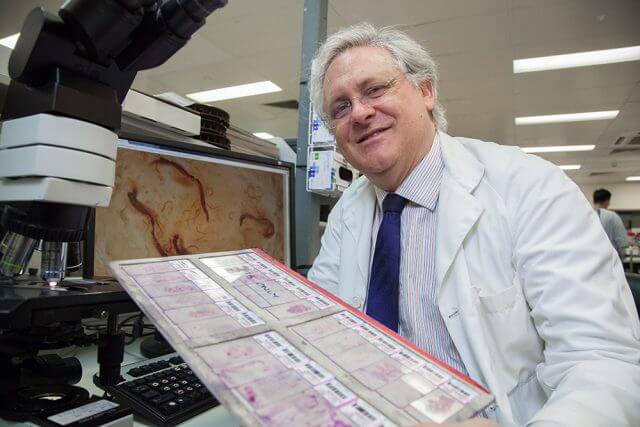
One of Perth’s leading pathologists is encouraging residents to see a GP rather than self diagnose worms symptoms which could lead to a condition in itself – delusional parasitosis.
Western Diagnostic Pathology Professor Miles Beaman said worms were prevalent in Australia but they had varying degrees of seriousness.
“The most common one is called pinworm (or threadworm) and it’s quite prevalent in young children,” he said.
“Basically it’s spread with contact with faeces, that’s why it’s common with young people. It can spread to other members of the family so sometimes it can be quite a while to eradicate it.
“It’s mainly annoying type symptoms rather than being anything too serious.
“There is a much more serious worm under recognised in Australia and that’s called Strongyloides Stercoralis and that is mainly distributed throughout tropical Australia.
“That can cause lifelong infection and serious infection with mortality in people who have damaged immune systems.
“That’s not well recognised by most Australian doctors because they don’t see too many cases of it.”
Prof Beaman said other common worms cases came from visits overseas.
“There’s a particularly important one from people coming back from Africa called Bilharzia, that’s acquired from swimming in contaminated fresh water mainly lakes and things like Lake Malawi,” he said.
He said there were other worms like pork or beef tapeworm and liver flukes that could be caught by eating food such as salads and sashimi.
“As they are uncommon, specialist referral is usually advised,” he said.
He said ultimately it was important to seek advice from a GP because the cases of delusional parasitosis were increasing.
“Delusional parasitosis is where people get convinced they do have parasites when they don’t,” he said.
“I see many cases of that a year now.
“We all get an itch every now and then, we have a scratch and don’t think about it any more but these people get obsessed in that and you set up an itch scratch cycle.
“They then get on the internet and take lots of medication they actually don’t need to take.
“Some of them are actually quite toxic, I’ve seen people actually poison their bone marrow by taking this insecticide for this parasite they were convinced they had when they didn’t.
“Over the counter worm medications are fine for simple cases like pin worm but anything that doesn’t settle people should see their GP, they might refer them to a specialist.”













